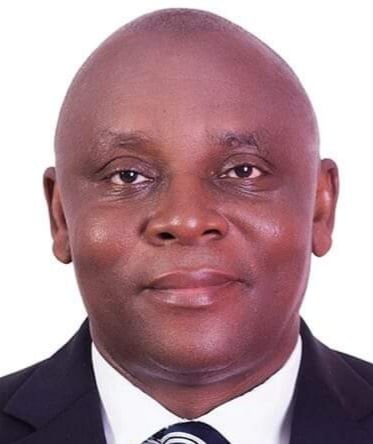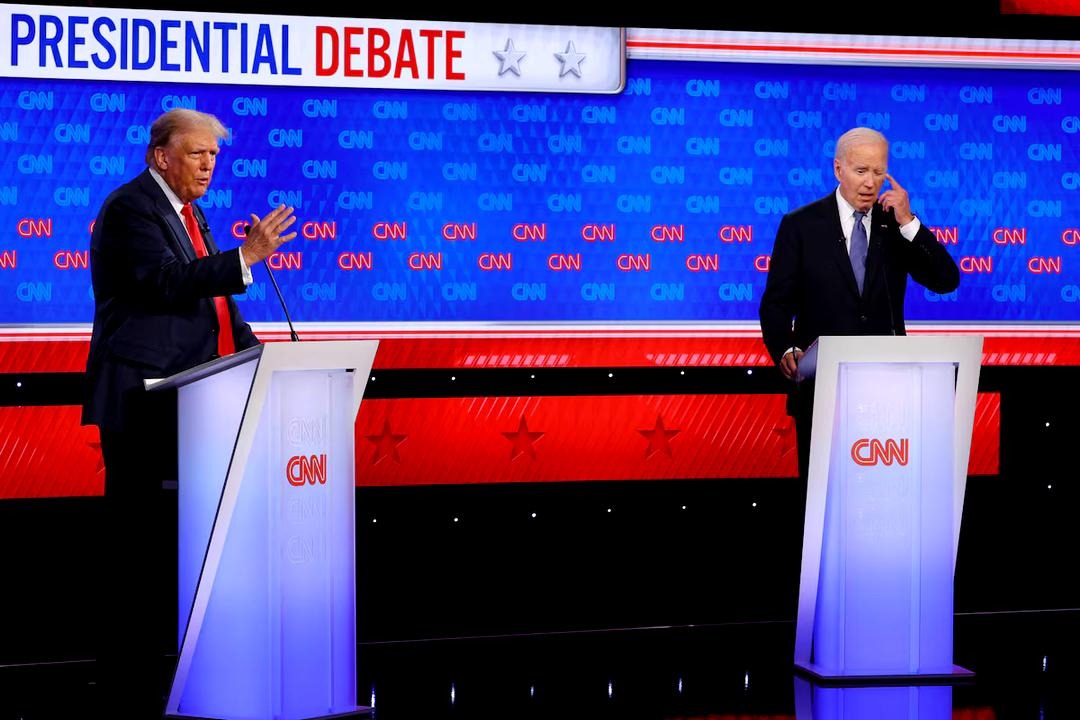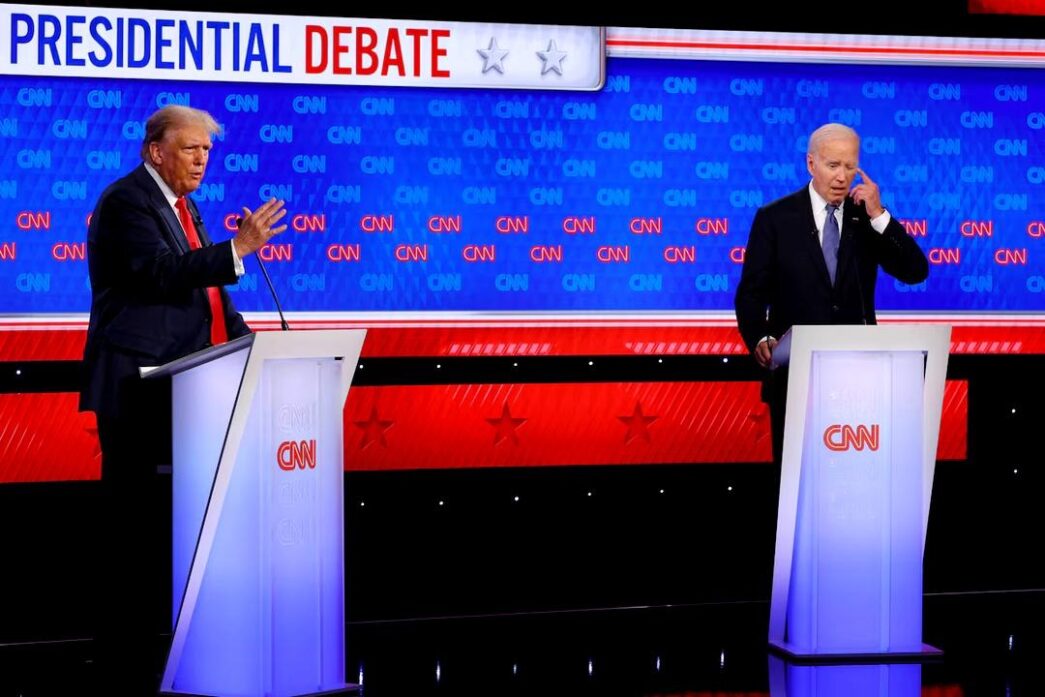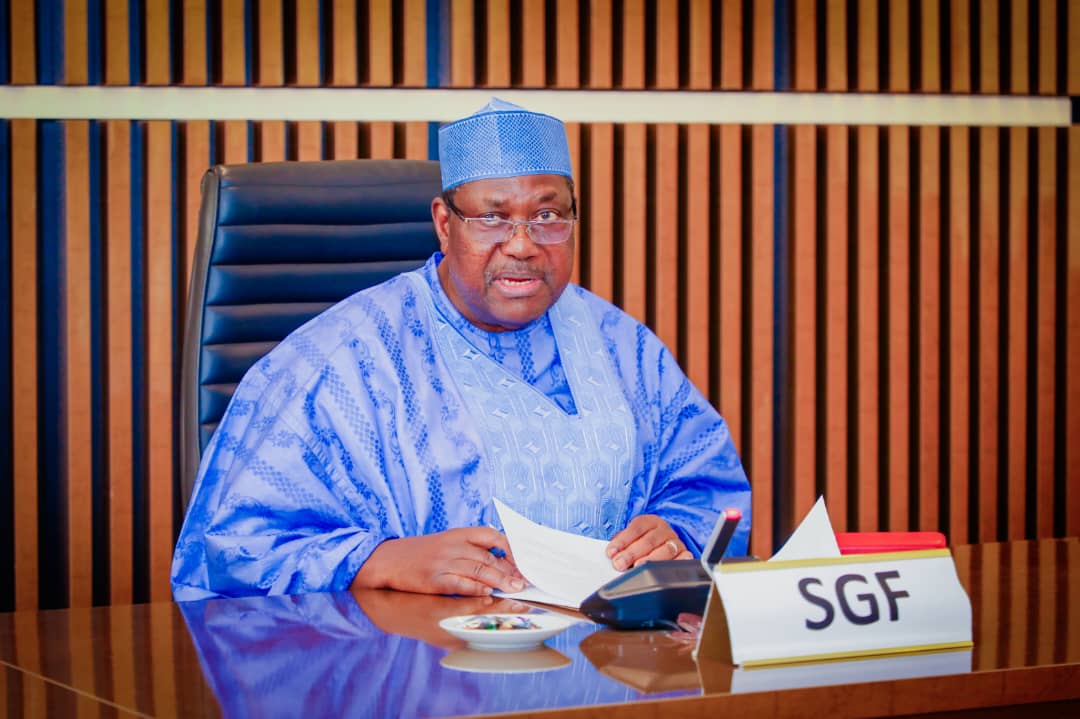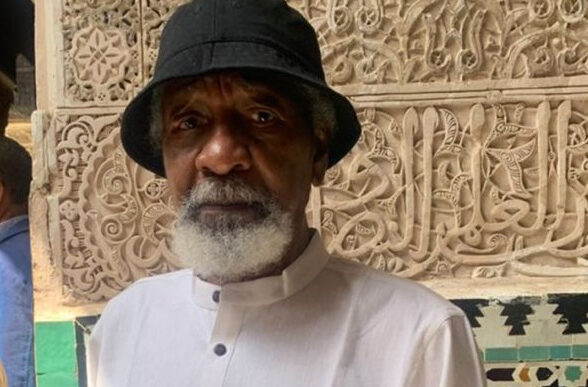Every presidential election cycle in the US comes with its peculiar drama that sometimes influences the outcomes of the race. Usually, these dramatic events come up in October, a month before the election, giving rise to the term ‘’October Surprise’’ coined in 1980 by William Cassey when he served as Ronald Reagan’s 1980 presidential campaign manager. But even before 1980, there had always been unpredictable political developments that affected the results of elections.
This year, the October Surprise came in June and President Joe Biden is fighting hard to save his legacy and reelection bid. I stayed up late to watch the Biden-Trump debate on June 27 (1am Nigerian time) and was surprised at how poorly the president performed, especially in the first few minutes. He stared blankly into space, stumbled on words, lost his train of thoughts and left sentences uncompleted. On the other hand, his opponent, Donald Trump, was in his element, lying through his teeth and looking more determined and stronger. The difference was stark and I was embarrassed for the president.
As soon as the debate ended, a fierce political firestorm erupted in the Democratic party, with many leaders, commentators and analysts asking the president to drop off the race because he had shown signs of cognitive decline during the debate. For the first five days, the administration was besieged, the Biden campaign was unsettled and the president himself was quiet.
He later acknowledged that he had a bad night due to a cold, sore throat and jet lag. He had just returned from a G7 Summit and had gone straight to attend a fundraiser a day to the debate. Yet the calls for him to exit the race were growing louder and louder. They claimed that an afflicted Biden would not be able to beat Donald Trump in the November 5 election. But the president quickly recovered from the shock and embarrassment and insisted that he was the only one who could defeat the Republican nominee, recalling how he came out victorious in the 2020 race and the 2022 midterms despite similar negative predictions.
Advertisement
It’s been two weeks since the debate, and in terms of public relations and crisis management techniques, how has President Biden and his team handled the situation?
Crisis management is anchored on the deployment of effective communication strategy and broadly, there are ways of doing that: The five C’s of crisis communications developed by Prof. Joe Zaldarriaga, a renowned communications specialist. They are: care (concern for the wellbeing of the customers); commitment (relevant, factual and updated information); competency (a team of competent and credible staff should be out there to speak for the organization); community (stakeholder relationship-building) and continuity (continued and consistent engagements).
In the last two weeks, the Biden team has been more focused on fending off calls for him to drop off than amplifying the president’s major achievements and laying out his vision for the next four years. In his first term, the president has recorded important legislative achievements like gun control and climate control bills; got more people working than at any point in US history; rescued the economy and changed the course of the COVID-19 pandemic; rebuilt infrastructure; lowered costs of medications and expanded benefits and services for veterans exposed to toxic veterans.
Advertisement
It is a surprise that the president did not tout these in the debate and so far, the campaign is not pushing them aggressively. A major drawback in crisis management is allowing yourself to be overwhelmed by the talking points of the opposition, instead of focusing on your own records and agenda.
But Biden and his team have done well in acknowledging his pitfalls and being truthful to the public. The president earned my sympathy when he announced at a campaign rally soon after the debate, ‘’I don’t debate as I used to; I don’t walk as swiftly as I used to, but I know how to do this job and I will always tell Americans the truth,” an indirect dig at his opponent. Truthfulness, forthrightness and admitting your wrongs are good in crisis management.
The White House communications team has also been very professional under intense media scrutiny, upright, forthcoming and factual. They have not issued threats to the media as we saw in Nigeria in 2022 and 2023 when Bayo Onanuga, the spokesman for the Tinubu campaign, was busy threatening the media and insulting people of different ethnic backgrounds. Over one year after the elections, our media is still under constant threats, intimidation and assaults, with many journalists detained or kidnapped or killed in Nigeria.
President Biden has also been busy in the last week granting interviews, addressing rallies and speaking to donors and party leaders. On Monday, he wrote a beautifully worded letter to party chieftains, urging them to close ranks and get ready for the election.
Advertisement
This week, Biden will host a NATO summit in Washington during which he will meet world leaders and address the US and international media. The summit is an opportunity for the president to showcase his foreign policy credentials for which he’s well renowned. Fixing a PR crisis is all about taking action and proving your point to counter the negative narratives.
It is also notable that the major leaders of the Democratic Party, including House Majority Leader, Hakeem Jefferies; former Speaker Nancy Pelosi; Senate Minority Leader, Chuck Schumer; the majority of the Democratic governors and even former President Barack Obama are with the President. Building a formidable stakeholder relationship is an important ingredient in managing a crisis. As a leader, you must build a consensus, lay out your game plan and motivate the team to follow you to the battle.
As you execute your plans, there may be slips on the way. You have to recover quickly and move ahead. Joe Biden told ABC News interview over the weekend that if he ends up failing the election, he’d be satisfied that he had done his best. That turned out to be a dumb answer, given the circumstances. To fix it, he called into a talk show on Monday morning and was asked the same question. He bellowed: “I will not lose the election. The question of losing does not arise. I am the man to beat Trump.”
His supporters loved that. In all, the president has managed this crisis fairly well. In our last general elections, Bola Tinubu failed to show up for the debates with his opponents. His team accused the media of bias, but we knew better. Looking back and taking everything into consideration, we can now understand why presidential candidates should subject themselves to the scrutiny that a debate offers.
Advertisement
Views expressed by contributors are strictly personal and not of TheCable.
Add a comment
